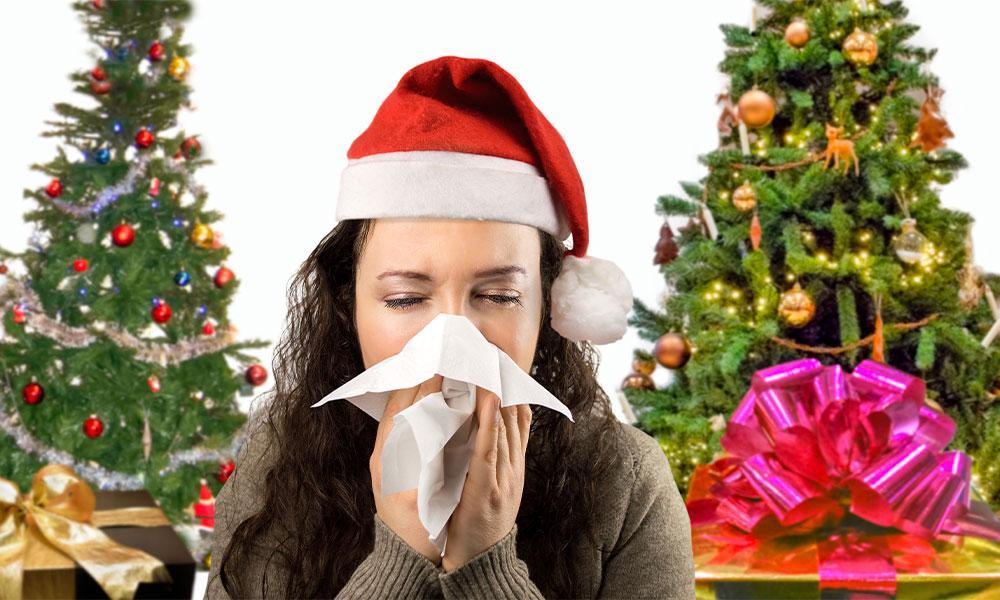
Is honey really good for your sinus infection?

COVID-19 UPDATE:
Dr. Caballero is now offering TeleHealth video appointments for patients who prefer not to visit the office.
Video appointments are available regardless of which state you live in.
TeleHealth appointments are fully reimbursable by all insurance plans during the COVID-19 crisis (standard copay and deductibles still apply).
If you’d like to schedule a TeleHealth video appointment please do so by calling the office 847 655-7442.
Do you have a sinus infection that won’t go away no matter how many times your doctor prescribes antibiotics? Maybe you should try squirting honey up your nose. That’s right, the scientific research has shown that rinsing your nose with Manuka honey can kill bacteria that cause certain sinus infections.
How does honey fight sinus infections?
Sinus infections can be caused by bacteria such as Staphylococcus aureus which can form difficult to eradicate colonies known as biofilms. Manuka honey contains high levels of a compound called methylglyoxal (MGO) which has powerful “anti-biofilm” properties.

A 2018 study published in the journal “AIMS Microbiology” reported on the effectiveness of Manuka honey on bacterial colonies in the laboratory. Even more impressive, honey has been shown to be effective against the antibiotic-resistant strain of Staphylococcus aureus.
Another study, published in 2014 in “International Forum of Allergy & Rhinology” showed that irrigating sheep sinuses with honey containing levels of MGO between 0.9 and 1.8 mg/mL will effectively fight Staphylococcus aureus. (In this test sheep were used so tissue could be easily obtained for analysis.) Similar results where obtained in a randomized clinical study on 42 human patients in 2017 which demonstrated that sinus infection symptoms were significantly reduced after rinsing with Manuka honey compared to a salt water control.
Not only does Manuka honey have antimicrobial properties by itself but it also has the ability to increase the effectiveness of antibiotic drugs. This is according to a 2018 report published in Letters in Applied Microbiology. Specifically, Manuka honey increases the sensitivity of S. aureus to Linezolid which is an oxazolidinone antibiotic.
What’s so special about Manuka honey?
When considering honey as a possible treatment for a bacterial sinus infection, one must keep in mind that not all honey is created equal.
Manuka honey is made by bees that pollinate the Manuka bush (Leptospermum scoparium.) This species grows all over the world but it only produces the proper flowers in New Zealand and Australia. These flowers contain high levels of dihydroxyacetone, a chemical which is naturally converted to MGO. This means that Manuka honey contains a much higher concentration of MGO than honey produced from other types of clover. True Manuka honey has the same kind of regional specificity as Champagne. There are many sparkling wines but only ones made from grapes grown in the Champagne region of France can be legitimately called Champagne. Similarly, authentic Manuka honey comes from New Zealand and Australia.
Not surprisingly, true Manuka honey is also more expensive than other varieties. You can expect to pay around $30 for an 8 ounce jar. When purchasing Manuka honey, look for the Unique Manuka Factor (UMF) rating which categorizes how much MGO the honey contains. The higher the UMF rating, the more active the honey will be. There are fewer than 100 companies in the world who are licensed to use the UMF rating system so choose carefully.
Is honey right for your chronic sinus infection?
It’s refreshing to find natural remedies for sinus infection that are proven by science to really work. So does all this information mean that you should squirt honey up your nose every time you think you have sinusitis? No!
First, you may have a type of sinus infection that’s caused by a different bacteria in which case honey may provide little or no benefit. Second, you may have a condition that is not a bacterial sinus infection at all. Allergies and viruses that cause upper respiratory tract infections can produce similar symptoms. Finally, even if your chronic sinusitis is caused by bacteria, if you’ve had sinus surgery the evidence shows that honey may not work any better than a saline nasal spray.
Since sinus infections can be caused by many factors and are easily confused with other conditions you should schedule a consultation with Dr. Caballero at the Advanced Sinus and Allergy Center to find the treatment that is right for you.
To learn more
Call (847) 655-7442 or click the “Request Appointment” button at the top of this page to schedule time with Dr Caballero at her Park Ridge, IL (northwest Chicago area) office.
References
- Int Forum Allergy Rhinol. 2017 Apr;7(4):365-372. doi: 10.1002/alr.21898. Epub 2016 Dec 9.
Manuka honey sinus irrigation for the treatment of chronic rhinosinusitis: a randomized controlled trial. - Am J Rhinol Allergy. 2016 Nov 1;30(6):414-417. doi: 10.2500/ajra.2016.30.4380.
Culture-directed topical antibiotic treatment for chronic rhinosinusitis. - Int Forum Allergy Rhinol. 2014 Mar;4(3):187-95. doi: 10.1002/alr.21264. Epub 2014 Jan 10.
Methylglyoxal-augmented manuka honey as a topical anti-Staphylococcus aureus biofilm agent: safety and efficacy in an in vivo model. - AIMS Microbiol. 2018 Nov 27;4(4):655-664. doi: 10.3934/microbiol.2018.4.655. eCollection 2018.
Antibacterial activity of Manuka honey and its components: An overview. - Lett Appl Microbiol. 2018 Jun;66(6):491-495. doi: 10.1111/lam.12880. Epub 2018 Apr 19.
Manuka honey and methylglyoxal increase the sensitivity of Staphylococcus aureus to linezolid. - Curr Allergy Asthma Rep. 2019 Mar 11; 19(4): 21.
Published online 2019 Mar 11. doi: 10.1007/s11882-019-0853-7
You Might Also Enjoy...


Can drinking milk cure nasal congestion?

Do I have allergies or coronavirus?

Concerned about Coronavirus? Telehealth appointments now available

Was Oprah right about the Neti pot for sinus rinsing?



